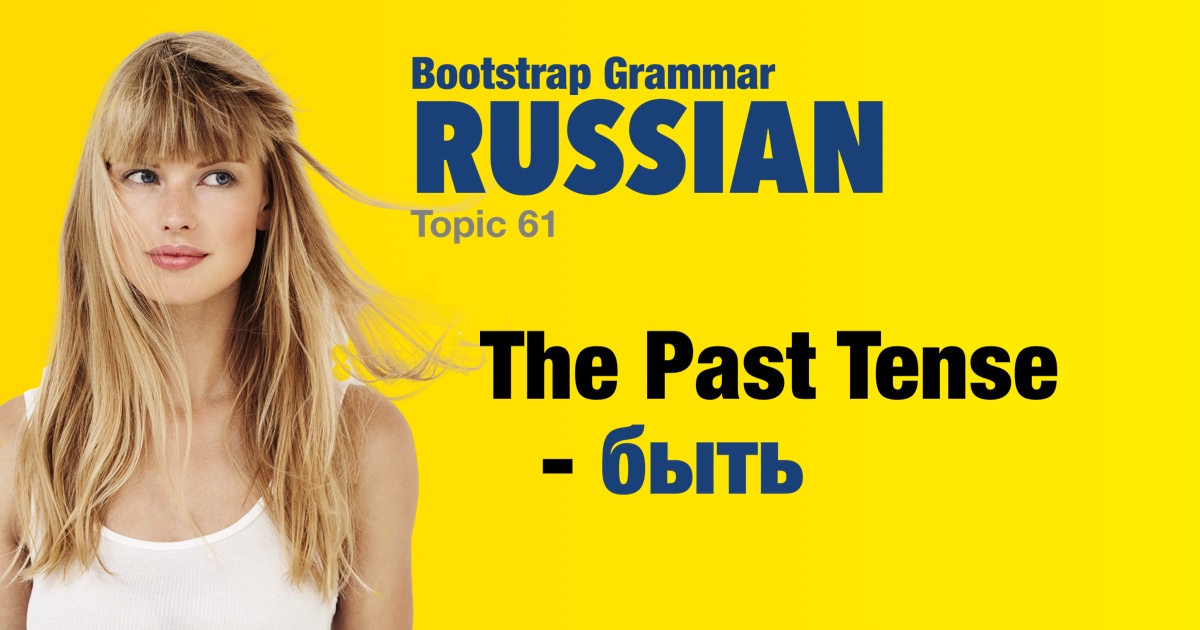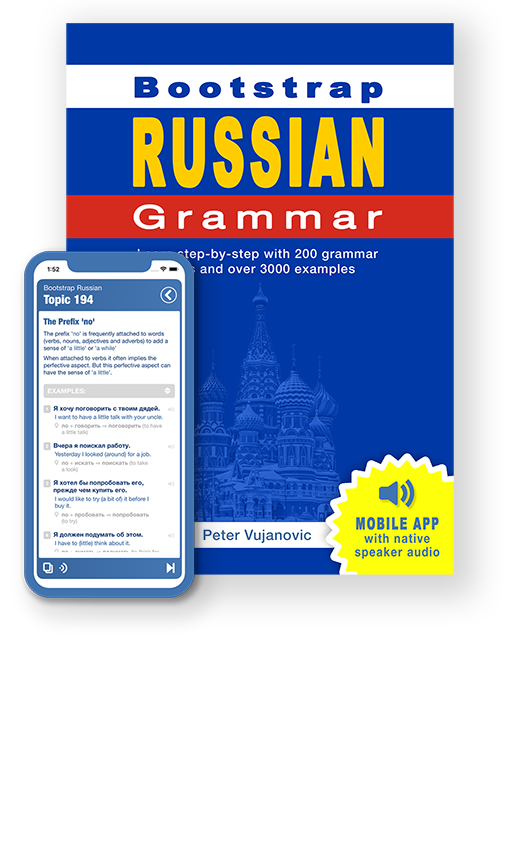Russian grammar - The Past Tense - быть |
|||
|
|||
In general the past tense is formed by replacing the verb's final «ть» with the suffix «-л», «-ла», «-ло» or «-ли» - depending on gender and number. Below are the past tense forms of the verb быть (to be): • он (masc. singular) был (бы + л) • она (fem. singular) была (бы + ла) • оно (neu. singular) было (бы + ло) • вы/мы/они (plural) были (бы + ли) The majority of Russian verbs form the past tense in this way - though there are many important exceptions. Recall that the verb быть is absent in the present tense, but is present in the past tense. |
| Examples: | |
|
Вчера Сергей был дома.
Yesterday Sergei was at home.
|
|
|
Ольге была грустно.
Olga was sad.
|
|
|
Я не был в школе утром.
I (male) was not at school in the morning.
|
|
|
Она была в Америке в прошлом году.
She was in America last year.
|
|
|
Они были в ресторане прошлой ночью.
They were at a restaurant last night.
|
|
|
Это было странно.
That was strange.
|
|
|
Вы были на работе в выходные?
Were you (formal) at work on the weekend?
|
|
|
Мы говорили о тебе и твоих друзьях.
We talked about you (informal) and your friends.
|
|
|
Ольга об этом не говорила.
Olga did not talk about that.
|
|
|
Я думала об этом.
I (female) thought about that.
|
|
|
Что ты делал в постели?
What were you (informal) doing in bed?
|
|
|
Машина была на улице.
The car was in the street.
|
|
|
Вы уже были дома?
Were you (formal) already at home?
|
|
|
Ты писал это письмо.
You (informal) were writing that letter.
|
|
|
Книга была об известном ученом.
The book was about a famous scientist.
|
|
|
Вы видели там своих новых русских друзей?
Did you see your (informal) new Russian friends there?
|
|
|
Он жил в Париже.
He lived in Paris.
|
|
|
То было облако.
It was a cloud.
|
|
|
Ключ был либо на столе, либо на стуле.
The key was either on the table or on the chair.
|
|
|
Кто смотрел на звезды в небе?
Who looked at the stars in the sky?
|
|
|
Конечно, мы хотели клубнику!
Of course, we wanted strawberries!
|
|
|
Какую книгу ты хотел?
Which book did you (informal) (male) want?
|
|
|
Вы поняли объявление?
Did you (formal) understand the announcement?
|
|
|
Она даже была похожа на своего старшего брата.
She even looked like her older brother.
|
|
|
Они играли в хоккей.
They played ice hockey.
|
|
|
Мы смотрели в окно.
We looked out of the window.
|
|
|
Дети играли вместе.
The children played together.
|
|
 |
|



